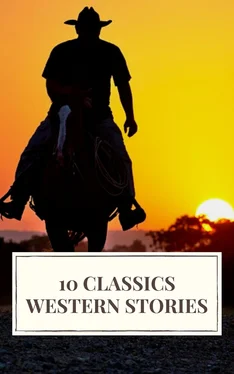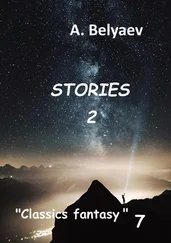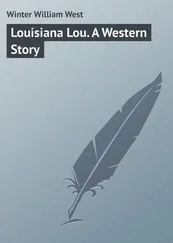“The Willamettes are beaten at last,—the Willamette speakers can no more be called the best,” was the one exultant thought of the allies, and the Willamettes trembled for the fame of their orators. Back in the shadow of the cottonwoods, an old Willamette warrior put an arrow on the string and bent his bow unseen on Tohomish.
“He cannot beat them, and it shall never be said that Tohomish failed,” he muttered. At that moment, even as death hung over him, the orator’s voice was heard beginning his “talk;” and the warrior’s hand fell, the bent bow was relaxed, the arrow dropped from the string. For with the first accents of that soft and lingering voice the tribes were thrilled as with the beginning of music.
The orator’s head was still bent down, his manner abstracted; he spoke of the legends and the glories of the Willamette tribe, but spoke of them as if that tribe belonged to the past, as if it had perished from the earth, and he was telling the tale of a great dead race. His tones were melodious but indescribably mournful. When at length he lifted his face, his eyes shone with a misty light, and his brutal features were illuminated with a weird enthusiasm. A shudder went through the vast and motley assembly. No boastful rant was this, but a majestic story of the past, the story of a nation gone forever. It was the death-song of the Willamettes, solemnly rendered by the last and greatest orator of the race.
At length he spoke of Multnomah and of the power of the confederacy in his time, but spoke of it as of old time, seen dimly through the lapse of years. Then, when as it seemed he was about to go on and tell how this power came to fall, he hesitated; the words faltered on his lips; he suddenly broke off, took his seat, and drew his robe again over his face.
<
div class="figcenter">
“ It was the Death-song of the Willamettes. ”
The effect was indescribable. The portentous nature of the whole speech needed only that last touch of mystery. It sent through every heart a wild and awesome thrill, as at the shadow of approaching destiny.
The multitude were silent; the spell of the prophet’s lofty and mournful eloquence still lingered over them. Multnomah rose. With him rested the decision as to who was the greatest orator. But the proud old war-chief knew that all felt that Tohomish had far surpassed his competitors, and he was resolved that not his lips but the voice of the tribes should proclaim their choice.
“Multnomah was to decide who has spoken best, but he leaves the decision with you. You have heard them all. Declare who is the greatest, and your word shall be Multnomah’s word.”
There was an instant’s silence; then in a murmur like the rush of the sea came back the voice of the multitude.
“Tohomish! Tohomish! he is greatest!”
“He is greatest,” said Multnomah. But Tohomish, sitting there dejectedly, seemed neither to see nor hear.
“To-morrow,” said the war-chief, “while the sun is new, the chiefs will meet in council and the great talk shall be ended. And after it ends, Multnomah’s daughter will be given to Snoqualmie, and Multnomah will bestow a rich potlatch [a giving of gifts] on the people. And then all will be done.”
The gathering broke up. Gradually, as the Indians gazed on the smoking mountains, the excitement produced by the oratory they had just heard wore off. Only Tohomish’s sombre eloquence, so darkly in unison with the menacing aspect of Nature, yet lingered in every mind. They were frightened and startled, apprehensive of something to come. Legends, superstitious lore of by-gone time connected with the “smoking mountains,” were repeated that afternoon wherever little groups of Indians had met together. Through all these gathered tribes ran a dread yet indefinable whisper of apprehension, like the first low rustle of the leaves that foreruns the coming storm.
Over the valley Mount Adams towered, wrapped in dusky cloud; and from Mount Hood streamed intermittent bursts of smoke and gleams of fire that grew plainer as the twilight fell. Louder, as the hush of evening deepened, came the sullen roar from the crater of Mount Hood. Below the crater, the ice-fields that had glistened in unbroken whiteness the previous day were now furrowed with wide black streaks, from which the vapor of melting snow and burning lava ascended in dense wreaths. Men wiser than these ignorant savages would have said that some terrible convulsion was at hand.
Multnomah’s announcement in the council was a dreadful blow to Cecil, though he had expected it. His first thought was of a personal appeal to the chief, but one glance at the iron features of the autocrat told him that it would be a hopeless undertaking. No appeal could turn Multnomah from his purpose. For Cecil, such an undertaking might be death; it certainly would be contemptuous refusal, and would call down on Wallulah the terrible wrath before which the bravest sachem quailed.
Cecil left the grove with the other chiefs and found his way to his lodge. There he flung himself down on his face upon his couch of furs. The Indian woman, his old nurse, who still clung to him, was absent, and for some time he was alone. After a while the flap that hung over the entrance was lifted, and some one came in with the noiseless tread of the Indian. Cecil, lying in a maze of bitter thought, became aware of the presence of another, and raised his head. The Shoshone renegade stood beside him. His gaze rested compassionately on Cecil’s sad, worn face.
“What is it?” he asked. “Your words were slow and heavy to-day. There was a weight on your spirit; what is it? You said that we were friends, so I came to ask if I could help.”
“You are good, and like a brother,” replied Cecil, gently, “but I cannot tell you my trouble. Yet this much I can tell,”—and he sat upon the couch, his whole frame trembling with excitement. “I have sinned a grievous sin, therefore the Great Spirit took away the words from my lips to-day. My heart has become evil, and God has punished me.”
It was a relief to his over-burdened conscience to say those harsh things of himself, yet the relief was bitter. Over the bronzed face of the Indian came an expression of deep pity.
“The white man tears himself with his own claws like a wounded beast, but it does not give him peace. Has he done evil? Then let him remember what he has so often told the Indians: ‘Forsake evil, turn from sin, and the Great Spirit will forgive.’ Let my white brother do this, and it will be well with him.”
He gazed at Cecil an instant longer; then, with a forbearance that more civilized men do not always show, he left the lodge without another word.
But what he said had its effect. Through Cecil’s veins leaped the impulse of a sudden resolve,—a resolve that was both triumph and agony. He fell on his knees beside the couch.
“Thou hast shown me my duty by the lips of the Indian, and I will perform it. I will tear this forbidden love from my heart. Father, help me. Once before I resolved to do this and failed. Help me that I fail not now. Give me strength. Give me the mastery over the flesh, O God! Help me to put this temptation from me. Help me to fulfil my mission.”
The struggle was long and doubtful, but the victory was won at last. When Cecil arose from his knees, there was the same set and resolute look upon his face that was there the morning he entered the wilderness, leaving friends and home behind him forever,—the look that some martyr of old might have worn, putting from him the clinging arms of wife or child, going forth to the dungeon and the stake.
“It is done,” murmured the white lips. “I have put her from me. My mission to the Indians alone fills my heart. But God help her! God help her!”
Читать дальше












